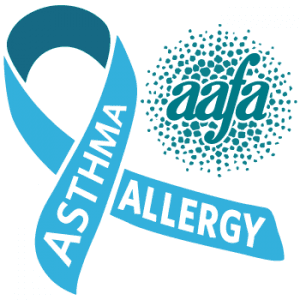
Nearly 26 million Americans have asthma, while an astounding 30% of adults and 40% of children have allergies. (Count yourself lucky if you somehow have neither!) This month, in the interest of offering information — and hopefully relief — we’re focusing on both asthma and allergies, and when to seek medical help for one or both.
Asthma
Asthma is a chronic disease that causes your breathing tubes to become inflamed. Common symptoms include:
- Coughing
- Shortness of breath
- Wheezing
- Chest tightness
Asthma happens when an outside particulate or event to triggers you. Common triggers are as follows:
- Pollen
- Chemicals
- Smoke
- Dust
- Stress
- Too much exercise
Once triggered, you may experience swelling, mucus build-up, and tightening of your airways.
Luckily, there is treatment for asthma. Treatment includes avoiding triggers and/or taking prescription medication (ask your doctor which medication is right for you). If you think you or a loved one may have asthma, schedule an appointment with your primary care provider immediately. Asthma should be monitored and treated by a healthcare professional.
Allergies
Most people hear “allergy” and think of someone with hay fever — the classic sneezing-coughing-eyes-watering-runny-nose type of allergy. But an allergy describes any instance in which the immune system experiences something as harmful and overreacts, which triggers the productions of antibodies called immunoglobulin E.
People can be allergic to many different things, including:
- Medications
- Food
- Insects
- Latex
- Mold
- Pet urine, saliva, and dander
- Pollen
Allergic reactions can induce irritating symptoms like watery eyes, a runny nose, sneezing, and a rash/hives, as well as more serious effects such as trouble breathing and mouth/throat swelling (called anaphylaxis). Problems with breathing or mouth/throat swelling can result in the hospitalization and even death.
Treatment options for allergies include avoiding allergens, taking certain medications, and immunotherapy:
Avoiding Allergens:
- Get rid of carpets (especially old ones)
- Don’t have your animals sleep with you
- Be mindful of what plants you buy for your home
- Deep clean your bathroom
- Exercise between 5 and 10 AM
- Leave shoes at the door
- Get rid of musty furniture
- Wash or air out all new furniture, towels, bedding, and clothing before using
- Get a good vacuum
- Medication: Ask your doctor which of the many options is right for you.
- Immunotherapy: Describes the prevention or treatment of a disease using substances that stimulate an immune response. Ask your doctor if this could help you!
Asthma and Allergies
Asthma and allergies often go hand in hand — your allergies may, for instance, cause your asthma to act up. If you’re allergic to something and breathe or touch it, you may have an allergic reaction that then triggers an asthma attack. Controlling your allergies will help moderate your asthma; conversely, controlling your asthma can prevent your allergies from acting up.
